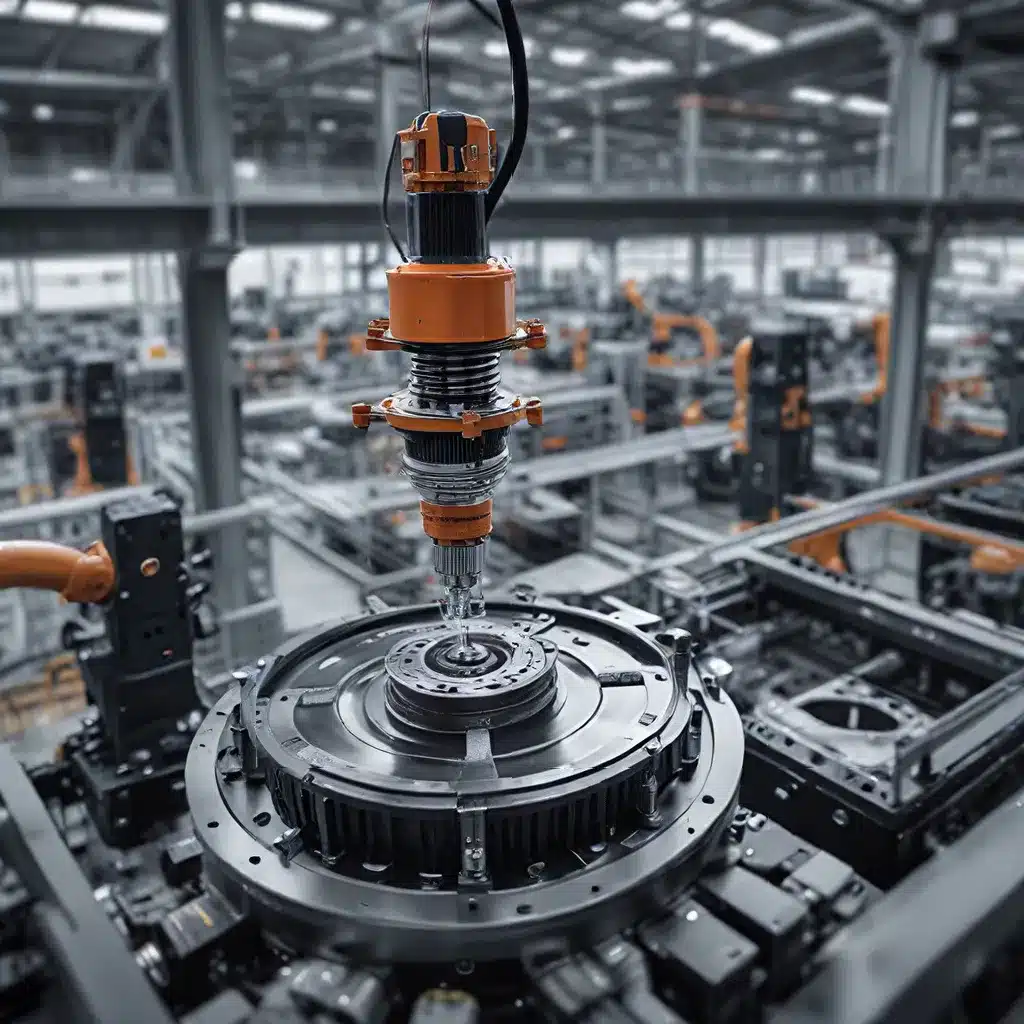
In the ever-evolving landscape of modern manufacturing, the integration of Internet of Things (IoT) technology is transforming the industry, powering a massive digital transformation. From automating production lines using robotics and cobotics (human-robot collaboration) to predicting equipment failures on the factory floor and tracking assets in a warehouse, the industrial IoT is at the center of the future of manufacturing.
Unlocking the Potential of IoT in Manufacturing
The emergence of sensor networks and IoT-enabled devices has revolutionized the way manufacturers approach production processes. By strategically deploying these technologies, companies can unlock a wealth of data-driven insights, leading to improved efficiency, productivity, and cost savings.
One of the primary use cases of IoT in manufacturing is production automation. Robotic systems and collaborative robots (cobots) can now work seamlessly alongside human operators, performing repetitive or hazardous tasks with greater precision and speed. These automated systems are often integrated with sensor networks that monitor various parameters, such as temperature, vibration, and product quality, to ensure consistent and reliable manufacturing outputs.
Another critical application of IoT in manufacturing is predictive maintenance. By equipping machinery and equipment with sensor arrays, manufacturers can continuously monitor their performance and predict potential failures before they occur. This proactive approach allows for targeted maintenance, reducing downtime and improving overall equipment effectiveness (OEE). Industry 4.0 initiatives have further emphasized the importance of this data-driven maintenance strategy, as it aligns with the broader goals of increased automation, connectivity, and optimization in the manufacturing sector.
Enhancing Production Visibility and Asset Tracking
In addition to automation and predictive maintenance, IoT technologies are also transforming the way manufacturers track and manage their assets. RFID tags, GPS sensors, and other location-tracking devices can be integrated into production equipment, inventory, and finished goods, providing real-time visibility into the entire supply chain.
This enhanced visibility enables manufacturers to optimize inventory management, reduce waste, and improve logistics. By tracking the location and status of assets, companies can make more informed decisions about production scheduling, warehouse management, and transportation. Sensor-enabled smart manufacturing also allows for better traceability and quality control, as manufacturers can closely monitor the journey of each product from raw materials to final delivery.
Addressing Security and Energy Challenges in IoT-Enabled Manufacturing
While the benefits of IoT in manufacturing are numerous, the integration of these technologies also presents unique challenges that must be addressed. Security is a primary concern, as the proliferation of connected devices and the vast amount of data generated by sensor networks increase the potential attack surface for cyber threats.
Manufacturers must prioritize the implementation of robust security protocols and data encryption techniques to protect their systems and sensitive information. Firmware, software, and knowledge base articles play a crucial role in ensuring the security and integrity of IoT-enabled manufacturing systems.
Another critical consideration is energy management. The deployment of sensor networks and IoT devices can significantly increase a manufacturer’s energy consumption, which can impact both operational costs and environmental sustainability. Manufacturers must explore strategies to optimize energy usage, such as deploying energy-efficient sensor designs and implementing smart power management systems.
Embracing the Future of Sensor-Enabled Smart Manufacturing
As the industrial IoT continues to evolve, manufacturers must stay at the forefront of these technological advancements to maintain a competitive edge. By strategically integrating sensor networks, automation technologies, and data-driven insights, companies can unlock unprecedented levels of efficiency, productivity, and cost savings in their manufacturing operations.
However, the successful implementation of these IoT-enabled solutions requires a holistic approach that addresses both the technological and the organizational challenges. Manufacturers must invest in employee training, infrastructure upgrades, and the development of robust security and energy management protocols to ensure the long-term success of their sensor-enabled smart manufacturing initiatives.
As the industry continues to evolve, the integration of IoT technology in manufacturing will undoubtedly play a pivotal role in shaping the future of production processes. By embracing this digital transformation, forward-thinking manufacturers can gain a competitive advantage and position themselves for continued success in an increasingly dynamic and technology-driven landscape.